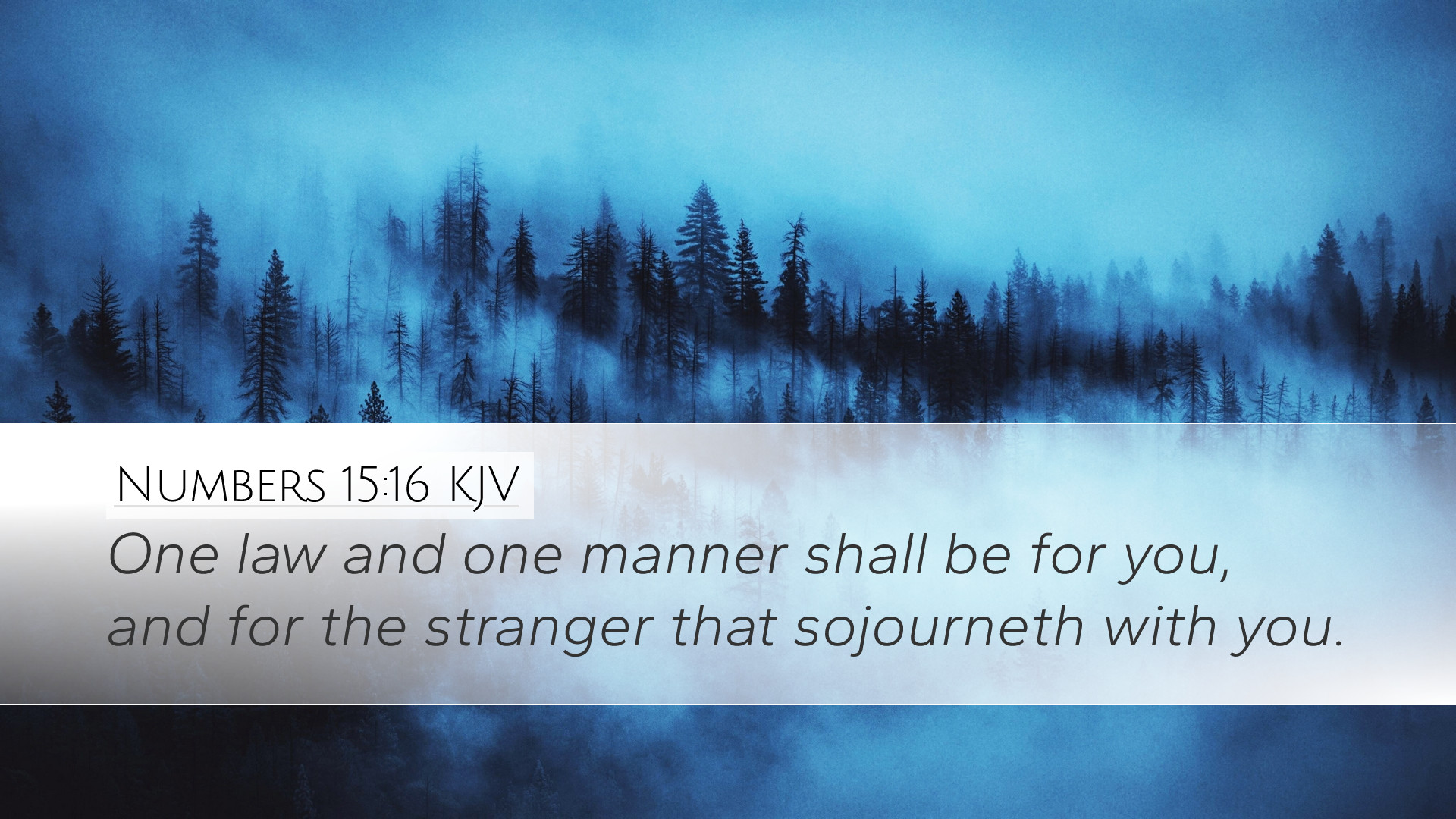Commentary on Numbers 15:16
Verse: Numbers 15:16 - "One law and one manner shall be for you, and for the stranger that sojourneth with you."
Context and Significance
The book of Numbers is pivotal in understanding the Israelite journey through the wilderness. Numbers 15, in particular, is part of a section that details laws and regulations meant for the Israelites as they prepare to enter the Promised Land. This verse, Numbers 15:16, emphasizes the unity and consistency of God's law for both the Israelites and the foreigners among them.
Theological Insights
This verse conveys the fundamental principle that God's law is universal. As Matthew Henry notes, "This was to show that the same God, whose laws were given to the Israelites, entitled the foreigners among them, to the same rights and responsibilities." This expression of inclusivity highlights God's desire for all who dwell among His people to adhere to His standards.
Commentary Perspectives
A. Matthew Henry's Commentary
Matthew Henry emphasizes that the phrase "one law and one manner" signifies a divine order that transcends societal boundaries. He remarks, "The same law maintains the same privileges and responsibilities." Thus, adherence to God's law serves to unify God's people, regardless of their ethnic or social backgrounds.
B. Adam Clarke's Commentary
Clarke elaborates on the idea of unity in diversity. He argues that the inclusion of strangers reinforces the community aspect of Israel's identity. "Those who join themselves to God's people," he writes, "must also be willing to abide by God's rules." Clarke underscores the transformative power of the Israelite faith, inviting thus newcomers to align with the moral and spiritual ethos of the community.
C. Albert Barnes' Commentary
Barnes highlights the implications of this law for community ethics. He points out, "There is a divine equity expressed in this law; all must equally adhere to the will of God." The openness exhibited towards strangers serves as a model for modern-day application of hospitality and inclusion in religious communities. Barnes encourages reflection on how contemporary practices align with biblical injunctions for universal justice and equality.
Applications
For pastors and theologians, Numbers 15:16 serves not only as an affirmation of legalism but also a call for a compassionate embrace of diversity within faith communities. Consider the following modern applications:
-
Embracing Diversity: As communities of faith, it is crucial to create spaces where individuals from diverse backgrounds feel welcome and valued, reflecting the inclusivity of God's law.
-
Uniformity Under God: In an increasingly segmented society, leaders must cultivate an environment that underscores shared values that transcend cultural differences, prioritizing spiritual unity over division.
-
Teaching Responsibility: Educators in faith settings should emphasize that genuine faith involves both personal faithfulness to God’s law and a commitment to communal ethical standards, encouraging believers to act justly towards one another.
Conclusion
Numbers 15:16 encapsulates a profound moral and theological principle: God's laws are designed to unify all people within His community. Such inclusivity calls for believers to act with justice, mercy, and humility. It challenges those in leadership to reflect on how modern practice can reflect biblical mandates. By embracing and promoting the same law for all, we reveal the heart of God and embody His vision for humanity.


